How long do bananas last? This question has crossed the minds of all of us at some point after purchasing bananas and then watching them turn brown and go bad.
Timing the ideal banana is not always easy. When you eat one before it’s ready, you’ll be disappointed. But if you wait too long, it will lose its firmness and become brown and yucky.
So, how long do bananas last?
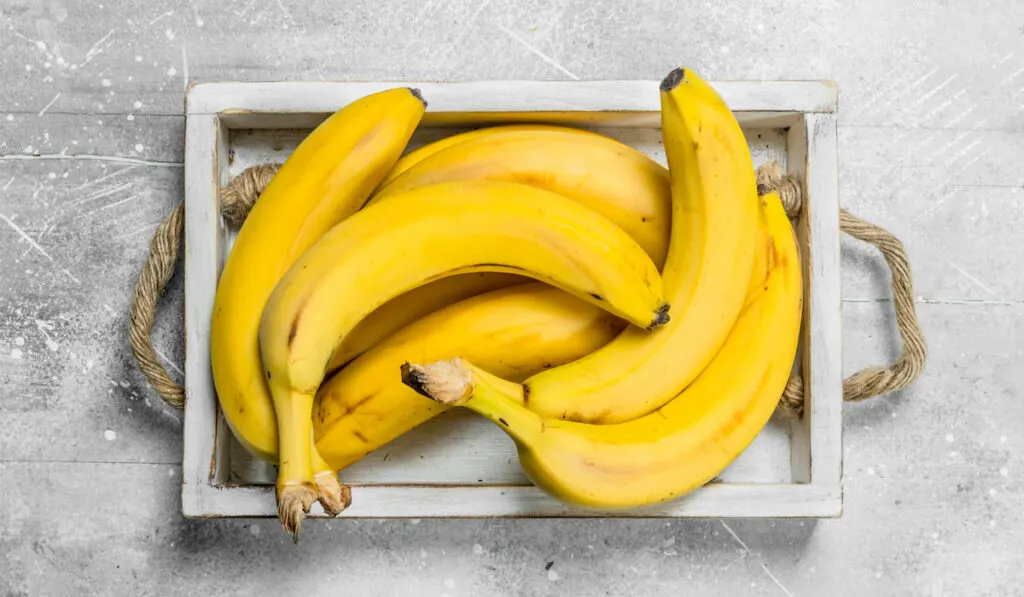
The exact answer to the question highly depends on how it is stored.
Properly stored bananas will reach peak freshness after 2 to 7 days at room temperature.
However, you most likely have additional questions in this regard. Do bananas need to be refrigerated? In the fridge, how long do bananas last? Is it safe to freeze bananas? How long do bananas last in the freezer? And finally, how can I tell if bananas have gone bad?
Read on, and you’ll find all the answers.
Table of Contents
How Long Do Bananas Last: In a Nutshell
| At Room Temperature. | Bananas, when unpeeled, have a shelf life of around 2-7 days at room temperature, depending on their ripeness when acquired. Bananas that have been peeled rapidly go rotten if kept at room temperature. |
| In the Refrigerator | Bananas have a shelf life of around 2 to 3 weeks in the fridge. |
| In the Freezer | Bananas can be kept in the freezer for about 3 to 6 months. |
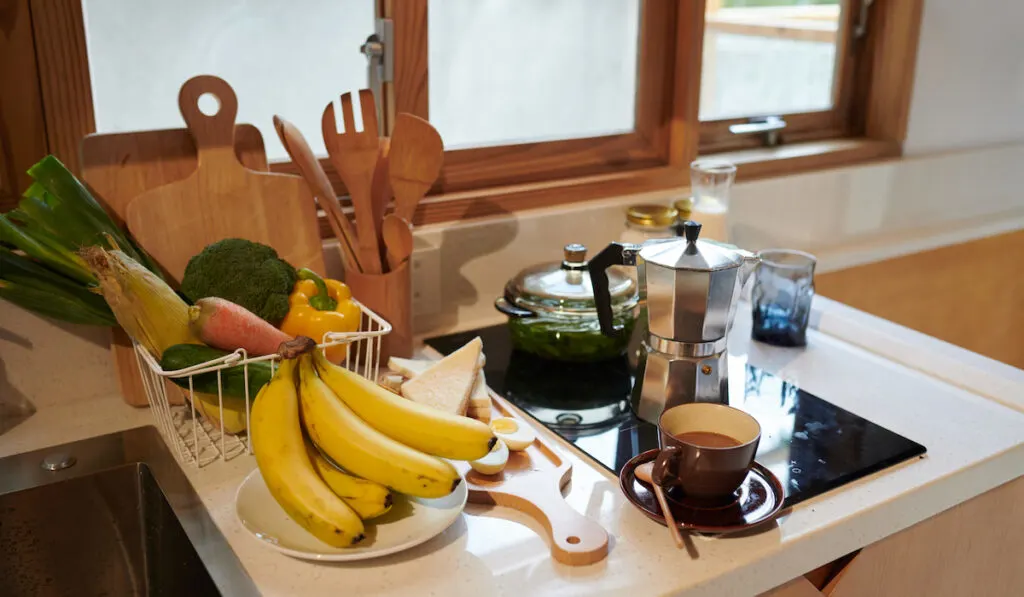
How Long Do Bananas Stay Fresh at Room Temperature?
Most supermarket bananas are unripe and must be held for a few days before they can be eaten. A banana that hasn’t fully ripened is slimy and doesn’t taste as sweet as a perfectly ripe one.
So, if you buy the bananas semi-ripe, as mentioned above, they may stay on the counter for roughly a week before turning brown.
Ripe bananas that have just gone entirely yellow and are no longer hard will remain at room temperature for three days before turning brown.
Naturally, the rate at which the bananas ripen is influenced by when you bought them (and how they were stored), as well as where you live (primarily by the temperature and humidity in your kitchen).
One thing is sure: if you want your bananas to live longer than a week, don’t just allow them to ripen on your kitchen counter.
You can help bananas extend their shelf life by following a few simple methods:
- Never store overripe and underripe bananas in the same location. Ripe bananas give off ethylene gas, which speeds up the ripening process when it comes into contact with unripe bananas.
- Keep bananas separate from other fruits like avocados, apples, tomatoes, and others. The key to extending the life of bananas is to keep them away from ethylene gas.
- The crown, or stem, of the banana, is where most of the gas is released. By covering the bunch’s crown in plastic, bananas can be kept fresher for longer by slowing the production of ethylene gas.
- Bananas should not be kept in a plastic bag or other sealed container. Bananas will ripen and perish faster if they do not have access to air.
- Bananas ripen more quickly if their flesh is exposed to air. Hanging them reduces the risk of breaking and scorching the skin.
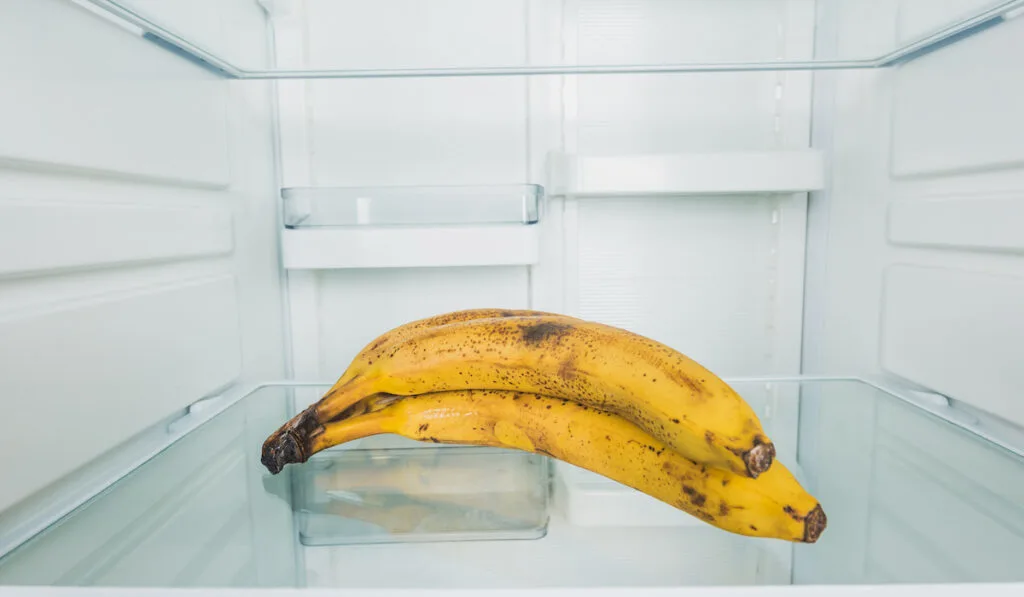
Does It Make Sense to Refrigerate Bananas?
Remember that one of the most important rules of banana storage is to never put unripe bananas in the fridge.
Bananas are tropical fruits that take a long time to ripen when kept in a cool place. Because of this, you should avoid putting bananas in the fridge while they are still green.
But once they’ve turned completely yellow and become soft, you can use the cold to stop the ripening process.
You can keep your bananas fresh and perfectly ripe for up to 10 days in the fridge.
Even after the peel has turned brown, the banana itself should still be perfectly edible.
Once the banana has been peeled or chopped, it can be stored in the refrigerator for up to 3 days if wrapped properly.
However, ripe bananas should not be refrigerated if you want to keep their vitamins and minerals intact.
Cold temperatures can harm the banana’s cell walls. This lets the banana’s natural enzymes escape, which breaks down the banana’s vitamins and other nutrients.
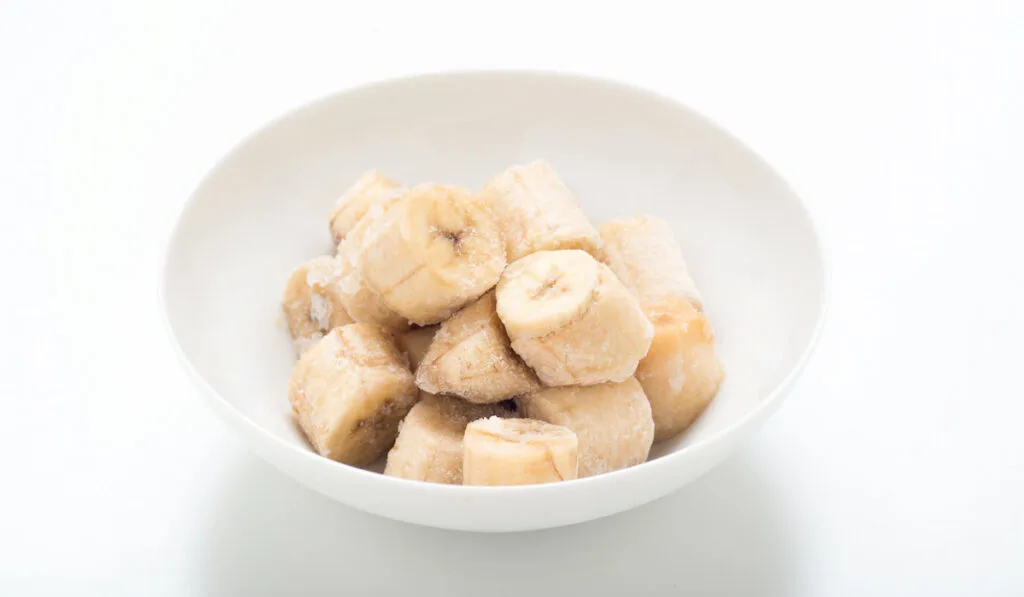
Is It Okay to Freeze Bananas?
Freezing a banana is the most effective method for prolonging its shelf life. Bananas remain edible the longest when frozen, and the process doesn’t change their taste or texture.
Frozen bananas can last for 3–6 months in the freezer.
Freeze them in a sealed bag or container after removing the skin and cutting them into manageable sizes for use in future recipes.
If you frequently use bananas in smoothies or as a flavoring ingredient in baked goods like bread and pie, this is an easy way to avoid wasting bananas that are ripening too quickly on the counter or in the fridge.
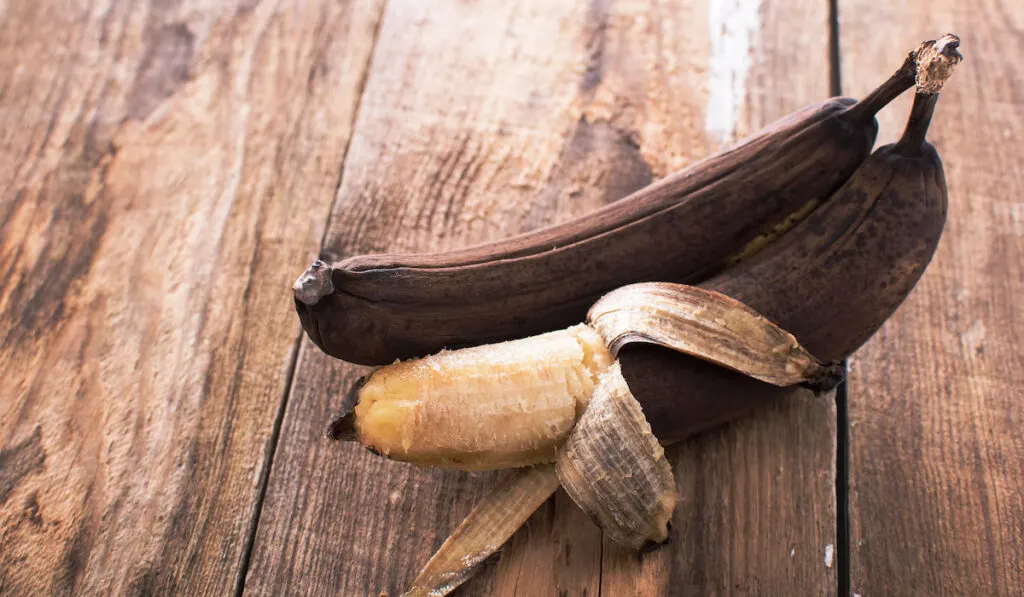
How to Find Out If Bananas Are Bad
As with most foods, there is a point past where you can’t go back.
While a dark brown or black banana peel is normal, a similarly dark brown inside indicates the fruit is overripe and about to spoil.
Another sign that bananas are no longer usable is if they have an unpleasant smell. Bananas that have gone bad often have a sour or alcoholic aroma.
Bananas that have developed mold should be immediately wrapped in plastic or paper and thrown away to prevent exposure to other produce.
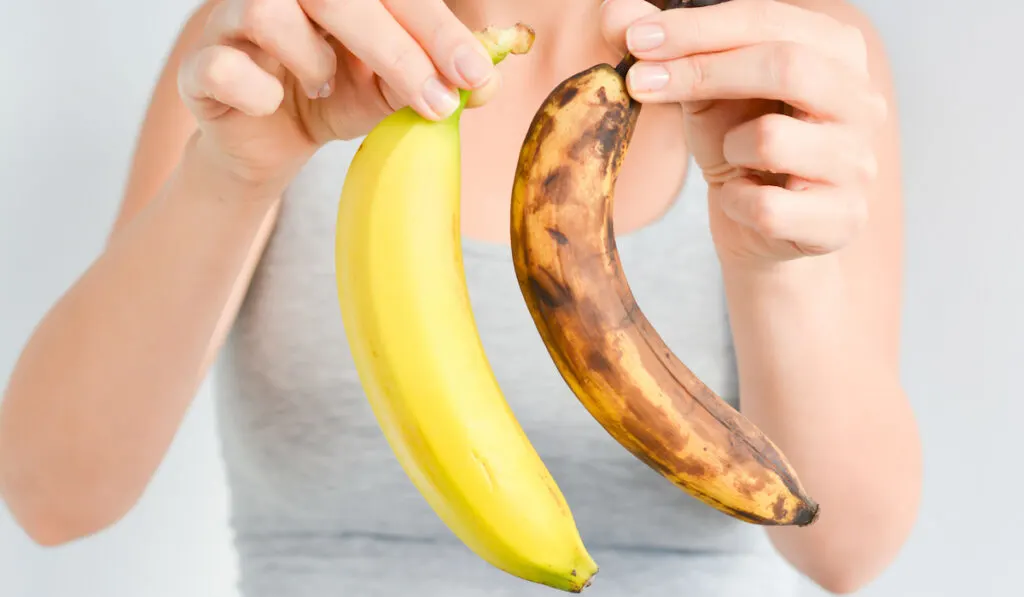
What to Do With Overripe Bananas?
Bananas, ripe and overripe, are a vegan baker’s best friend since they add natural sweetness, moisture, and binding and flavoring properties.
Overripe bananas should be sliced open and discarded if they have any mushy brown spots. Hold on to everything else.
The sugar concentration of overripe bananas peaks, making them a go-to for use in a wide range of sweet treats.
Here are a few of the most common ways to use bananas in sweet dishes:
- Banana bread
- Banana French toast
- Banana pancakes
- Banana muffins
- Banana smoothies
- Banana milkshakes
Final Thoughts
Bananas are a popular fruit because of their high potassium content and convenience for on-the-go snacking.
Unfortunately, they go bad faster than other fruits.
However, there are methods for storing bananas that allow you to delay their ripening and enjoy them for much longer after they are bought.
If you want your bananas to last longer and not spoil quickly, follow the guidelines in this article on proper storage methods.
Resources
- https://www.glad.com/wp-content/uploads/2020/05/GladUC_HowtoFreezeStoreBananas.pdf
- https://www.stilltasty.com/fooditems/index/16451
- https://afoodloverskitchen.com/how-long-do-bananas-last/
- https://madamngrecipe.com/how-long-do-bananas-last/?utm_content=cmp-true
- https://www.bbcgoodfood.com/howto/guide/top-10-ways-use-ripe-bananas
